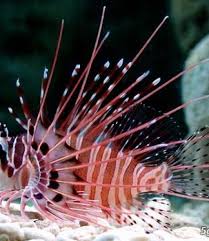
In Chinese mythology, the dragon is one of the most powerful and auspicious symbols. It is revered not only as a creature of myth but also as a representation of natural elements and cosmic forces. The dragon’s presence in folklore is deeply tied to various aspects of nature, such as water, wind, earth, and the celestial bodies. These connections make the dragon a central figure in understanding the Chinese worldview of the relationship between human life and the natural world.
The dragon in Chinese culture is much more than a mythological creature; it is a bridge between the earthly and heavenly realms, representing both the natural forces of the universe and the balance required for prosperity and peace. Through this exploration, we will delve into the fascinating connections between the dragon and the natural elements in Chinese mythology, shedding light on how the dragon influences and harmonizes with the natural world.
The Nature of the Chinese Dragon: A Symbol of Cosmic Power
Before examining the dragon’s connection to nature, it’s essential to understand the role of the dragon in Chinese mythology. Unlike the fearsome dragons of Western tales, the Chinese dragon is seen as a benevolent, celestial creature with the power to control various aspects of the natural world. The Chinese dragon is often depicted as a long, serpentine creature with the head of a camel, the horns of a deer, the eyes of a rabbit, the body of a snake, the claws of an eagle, and the scales of a carp.
This hybrid nature of the dragon signifies its mastery over multiple elements, both earthly and cosmic. The dragon’s connection to water, the sky, and the earth, alongside its embodiment of the Yin and Yang forces, reflects the ancient Chinese philosophy of balance and harmony.
The Dragon and Water: The Master of Rivers, Seas, and Rain
One of the primary natural elements associated with the Chinese dragon is water. Dragons are often thought to be water deities or guardians of rivers, lakes, and seas. They are believed to control rainfall, rivers, and bodies of water, as water is essential for life and prosperity in Chinese culture. The dragon’s association with water symbolizes fertility, abundance, and renewal.
The Dragon Kings of the Four Seas
In Chinese mythology, there are Four Dragon Kings (龙王, Lóng Wáng), who rule over the four seas—East, South, West, and North. Each Dragon King is said to control one of these vast bodies of water and is responsible for ensuring the balance of water in the world. These Dragon Kings are frequently invoked during times of drought or when a disaster threatens the harvests. They are said to possess the power to summon rainfall, flood the land, or calm the waters when necessary.
The Dragon Kings have an important role in Chinese culture, as they ensure the proper distribution of water and prevent floods. In times of peace, they are honored as benefactors, but they can also bring chaos if angered. The belief in the Dragon Kings reflects the deep connection between water and human survival, as agriculture in ancient China relied heavily on the balance of rainfall.
The Myth of the Dragon’s Gate
The Dragon’s Gate myth is one of the most popular in Chinese folklore and highlights the dragon’s association with water and transformation. According to the myth, a carp that successfully swims up the Yellow River and leaps over the Dragon’s Gate waterfall will transform into a dragon. This transformation symbolizes the power of perseverance and growth, as the carp represents a humble creature that can achieve greatness through effort.
The Dragon’s Gate myth speaks not only to the power of water but also to the transformative power of nature. Water, in this context, becomes a medium through which individuals or creatures can transcend their limitations and reach their full potential, much like the carp’s transformation into a dragon.
The Dragon and Wind: The Power of Movement and Change
In addition to water, dragons are often associated with wind and air. The dragon is considered a celestial being that controls the winds, storms, and the flow of energy through the universe. As part of the elemental forces, dragons have the ability to summon or disperse the winds, which further emphasizes their power over nature.
The Dragon as a Harbinger of Storms
In Chinese mythology, the dragon’s role in controlling wind and storms highlights its dual nature—both as a benevolent and destructive force. Dragons are believed to have the ability to create storms that bring rain to parched lands. However, these same storms can also cause destruction if the dragon is angered. The dragon’s power to control wind is directly linked to its role in shaping the natural world and ensuring its balance.
Dragons are often depicted riding on clouds or swirling in the skies, signifying their mastery over both air and water. The cloud dragon is one of the most popular representations of the dragon in Chinese art and mythology, and its connection to both wind and water reinforces the idea that the dragon is a force of nature that both nurtures and disrupts.
The Dragon and the Elements of Balance
The relationship between the dragon and wind can be understood in the context of the ancient Chinese principle of Qi (气)—the vital life force that flows through all things. Wind, in Chinese philosophy, is often seen as a manifestation of Qi, and the dragon’s ability to manipulate this flow of energy is indicative of its connection to the cosmic forces that govern life and the natural world.
The ability of dragons to control wind and storms is symbolic of their role as guardians of balance in the universe. In Chinese cosmology, the forces of nature are interconnected, and the dragon, as a force of nature itself, plays a vital role in maintaining harmony between all elements.
The Dragon and Earth: Harmony with the Land and Its Creatures
In Chinese culture, the dragon is also linked to the earth, particularly in its connection to mountains and landscapes. Dragons are often depicted as living in the mountains or deep underground, where they are associated with the earth’s energies. The dragon’s ability to control the forces of nature on land further emphasizes its role as a cosmic entity that influences all aspects of the natural world.
Dragons and Sacred Mountains
Mountains in China have long been regarded as sacred, and they are often seen as places where the earth meets the heavens. According to Chinese mythology, dragons are believed to inhabit these sacred mountains, and they are considered protectors of the land. Some of the most famous mountains in China, such as Mount Kunlun, are believed to be the homes of dragons, who guard these sacred spaces and ensure the fertility of the land.
The relationship between dragons and mountains symbolizes the dragon’s connection to the physical world, as well as its role in maintaining the balance between the heavens and the earth. The dragon’s presence in these locations signifies its authority over the land and its power to bring prosperity or destruction depending on the balance of natural forces.
The Dragon and Agriculture
In traditional Chinese agricultural society, the dragon’s connection to the earth was deeply significant. The dragon’s control over water and weather directly impacted the success of the harvest. In times of drought, the emperor would perform ceremonies to honor the dragon and ask for rain, while during floods, the dragon was invoked to calm the waters and restore balance.
Agriculture, the backbone of ancient Chinese society, was highly dependent on the natural elements. The dragon, as the ruler of water and weather, was seen as a vital force in ensuring the fertility of the land and the survival of the people. This connection between the dragon and the earth underscores the importance of natural forces in Chinese culture and mythology.
The Dragon and the Heavens: Celestial Influence
Finally, the dragon’s connection to the heavens is a crucial aspect of its role in Chinese mythology. The dragon is often depicted as soaring through the sky, signifying its ability to travel between the earthly realm and the heavens. In Chinese cosmology, the dragon is a symbol of the celestial forces that govern the universe.
The dragon is closely associated with the Emperor, who is regarded as the “Son of Heaven.” This divine connection links the dragon to the celestial realm, where it serves as a protector of both the emperor and the natural world. The dragon’s role in the heavens emphasizes its importance in maintaining the harmony between the cosmos and the earth.
Conclusion: The Dragon’s Sacred Role in Chinese Mythology
In Chinese mythology, the dragon is much more than just a mythical creature; it is a powerful symbol of the forces that govern nature and the cosmos. Its connection to water, wind, earth, and the heavens reflects the deep interdependence between humanity and the natural world. The dragon, with its ability to shape the elements, plays a crucial role in ensuring balance, prosperity, and harmony in the universe.
Through the dragon, Chinese mythology teaches the importance of respecting and understanding the natural world. The dragon embodies the forces that drive the universe, and its connection to the elements serves as a reminder of the delicate balance between humans and the environment.









